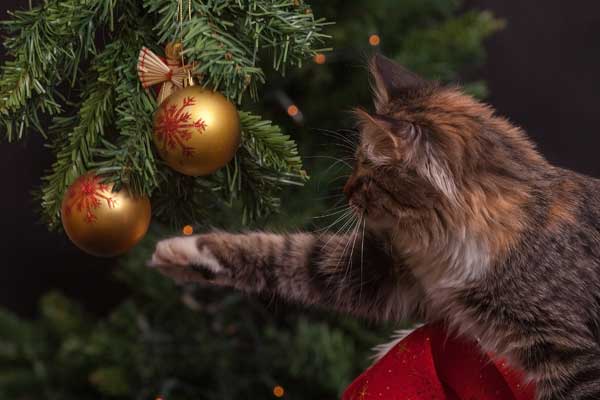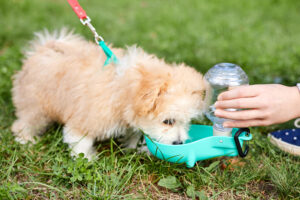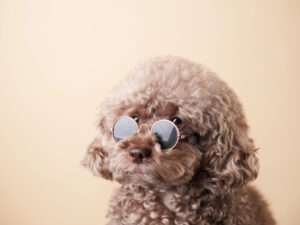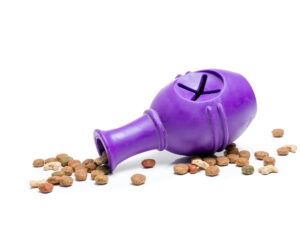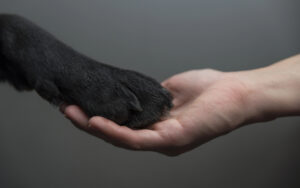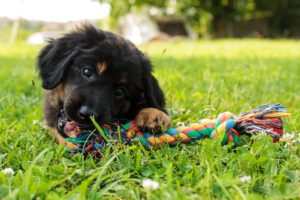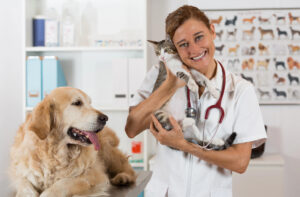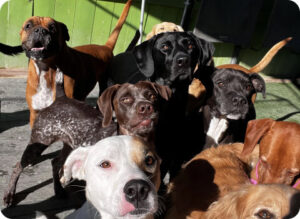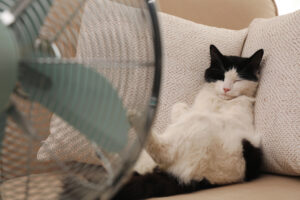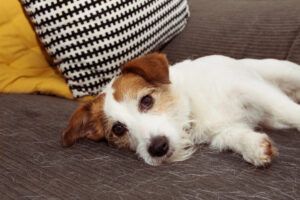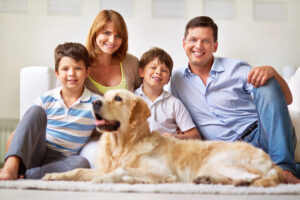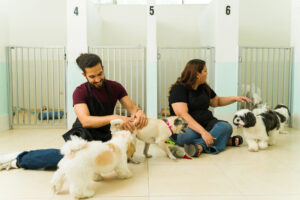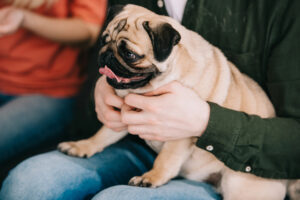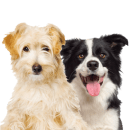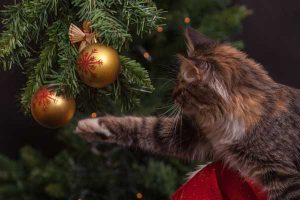
As you celebrate the holidays this year, please give some thought to your pets. Holiday decorations and people treats can cause problems for your animals, and company can be stressful. The tips below cover all the basics of pet safety so both you and your animals can enjoy this special time of year.
Food
Dogs are especially likely to want to share your holiday goodies, but people food can cause problems. Keep these foods away from your pets:
- Chocolate – this beloved holiday treat is toxic to both dogs and cats.
- Sweets and Baked Goods – these foods are often too rich for animals and sugar is just as bad for their teeth as it is for yours. If you use artificial sweeteners, you should know that xylitol can cause liver failure and death in dogs.
- Table Scraps – Pancreatitis can result from turkey skin, gravy or meat fat. Some of the components of holiday food are poisonous, such as the onions in stuffing or the raisins and grapes in fruit salads and breads.
- Yeast Dough – unbaked, yeast dough can cause increased intestinal gas and bloating. Severe bloating is a medical emergency.
Decorations
Holiday decorations pose a variety of dangers for pets. Choking, toxicity and electrical shock are some of the examples. To keep your pets safe, follow these suggestions:
- The Tree – secure your Christmas tree so it can’t tip over if a curious cat decides to try climbing. A heavily weighted solid base is a good start. You can also use fishing line to secure the tree to a ceiling or adjoining walls. Don’t add anything but water to the reservoir – additives can be dangerous.
- Ornaments – if swallowed or inhaled, these can cause choking or intestinal obstruction. Salt-based dough ornaments, gingerbread cookies and the like should be kept well out of reach. Make sure ornaments are securely fastened to the branches. Some people suspend the tree overhead to ensure it is out of reach.
- Tinsel, Wrapping Paper and Ribbons – while attractive, especially to cats, these may contain chemicals or dyes that are harmful if swallowed. Tinsel and ribbons can cause intestinal obstruction.
- Lights – like any electrical device, these carry the risk of burns and shocks. Make sure cords are out of reach or unplug unless you have the tree under direct observation.
- Plants and Flowers – the classic poinsettia is toxic to pets, as are amaryllis, pine, cedar, holly, mistletoe and balsam.
- Other Risks – candles are a fire danger; never leave a pet alone in a room with a lighted candle. Potpourris contain essential oils and other ingredients that can be toxic if eaten.
Parties and Visitors
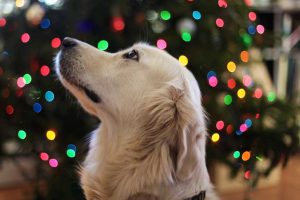
We all like to see friends and family during the holidays. To protect your guests, let them know if you have pets in the house – some may have allergies or compromised immune systems. Others may find exotic pets alarming or frightening. To ensure both guest and pet safety, make sure your pets have a safe, quiet retreat that is off limits to guests. It’s probably safer to ask that guests don’t bring their own pets; the animals may fight. If your pet joins the gathering, keep it leashed or make sure to watch exits to prevent a pet bolting out the door.
Don’t hesitate to call us or the ASPCA Poison Control Hotline if your pet shows signs of poisoning like vomiting or respiratory distress. Here’s to keeping your pets safe this holiday season so you can all enjoy it.




